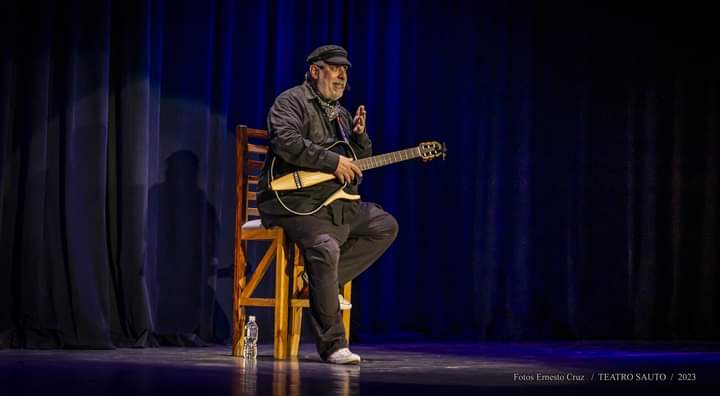The singer-songwriter with an armchair in the center, a guitar embraced by huge hands and sober clothing that helps stylize more than one hundred kilos of Cubans, performed at the Teatro Sauto National Monument. He gave Matanzas a decent Saturday night. A concert by Frank Delgado is an ode to refined nonsense, an invocation to thinking in the form of a song, a whipping of bureaucrats and laughter with echoes of reflection.
One of the faces of Nueva Trova, who is not so new because of his age (63 years old), receives the spotlight weekend after weekend, Tuesdays and Wednesdays as well, and the occasional Monday and Friday. The presentations end with a sphygmomanometer wrapped around his arm marking the tension. You understand that dominating so many audiences takes its toll, and, above all, the toasts afterward.
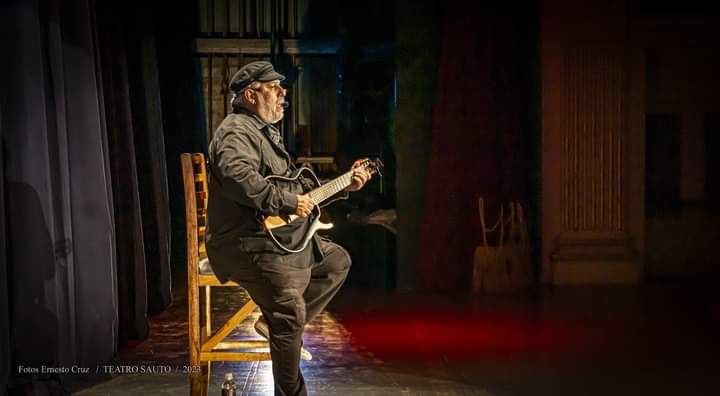
“I’m not tired, I don’t feel bad. Look, I’m surprised because recently in Santa Clara I felt terrible after the concert, which, by the way, was in a very strange place. But now I’m okay. It was two hours, normally in bars, which is what I’m doing the most, and I put in three, which the doctor has already forbidden me.
Frank Delgado paints traditional paintings with songs. In his presentation, he intertwines the performances with hilarious stories that involve his son «the American», Fito Páez, his school teacher and the gaguera of his string brother Santiago Feliú.
The monologues that I tell have been elaborated little by little. I’ve never written them, someday
It occurs to me to tell something and at the end of the concert I write it down, hey, I have to repeat this. After so many years on stage, there are stories that I have been perfecting. Most of the stories are not only true, but true (laughs), as Les Luthiers would say.
I have had to assume the guitar, after a long time that I did not. I spent 7 years working with a group, small in format, but with a guitarist who accompanied me, tres player, percussionist and bassist. The pandemic came and I was left alone. It is not easy to say I am going to Matanzas, and there is no transportation and find something with at least four wheels to come to this National Monument.
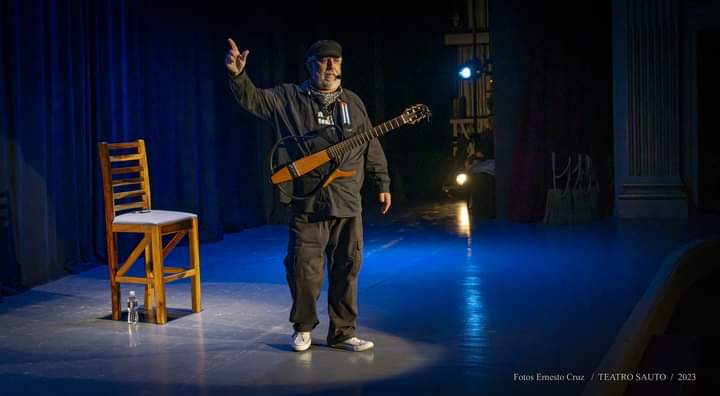
But I have to get away from Matanzas a bit. I’m coming a lot, they’re going to get bored of me. The poor will wonder if there isn’t another troubadour who wants to come to this city. The last time I showed up at El Jardín de Pelusín, in December, and before that on the disastrous August 5, the day of the fire…
That afternoon, this journalist had gone to see the composer
A troubadour before the fire
Frank Delgado played on the Friday of that day in August at 8:30 at the Teatro Sauto. But the singer-songwriter, a fish appeased in troubled waters, knows that concerts never start at the scheduled time, and more than once one of his concerts has been delayed because there was no electricity.
The troubadour peered into the bay of Matanzas waiting for electricity. It’s been more than 40 years on stools with the guitar enough to get overexcited for not being able to test the sound. There, on a balcony behind the Theater, he remains calm, until the explosion of one of the crude oil container tanks in the Industrial Zone destroys his fearlessness.
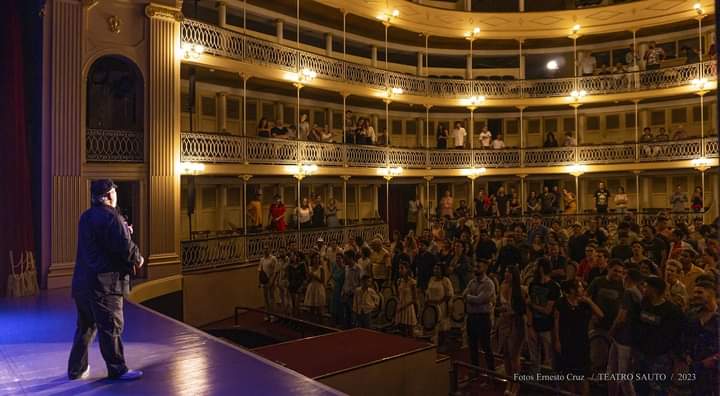
With a bay in between, he absorbs the smoke that gravitates to contaminate the sky. The artist shudders. Go down to the patio to avoid the branches of the white oak that prevent you from seeing the flames. Looking towards the calamitous horizon, he flexes his resentful knees to climb onto a marble bench. He sticks to saving the amazing images to his phone and wondering: What happened there?
The people from Matanzas walked the street in front of Frank Delgado, but the daunting landscape dominates the eyes. No one realizes that it is the troubadour who is holding himself up behind bars. The ambulances go by at full speed with their alarms that dramatize the scene. As the fire feeds on the fuel, thick, black smoke grows.
The concert was not suspended, unimaginable the consequences of that historic disaster
Eight months later, Frank sang to the Athens of Cuba
I came by bus with Arnaldo and his Talismán, who now play near here, and I’ll tell you, I love riding buses with unknown people. I’ve been doing it a lot lately: I went to Camagüey, Santa Clara and Trinidad, and I enjoyed it. I did this mechanic many years ago, I got to know all of Latin America mounted on a bus. So, I get the feeling that I’m going to discover something new every time I get on one.
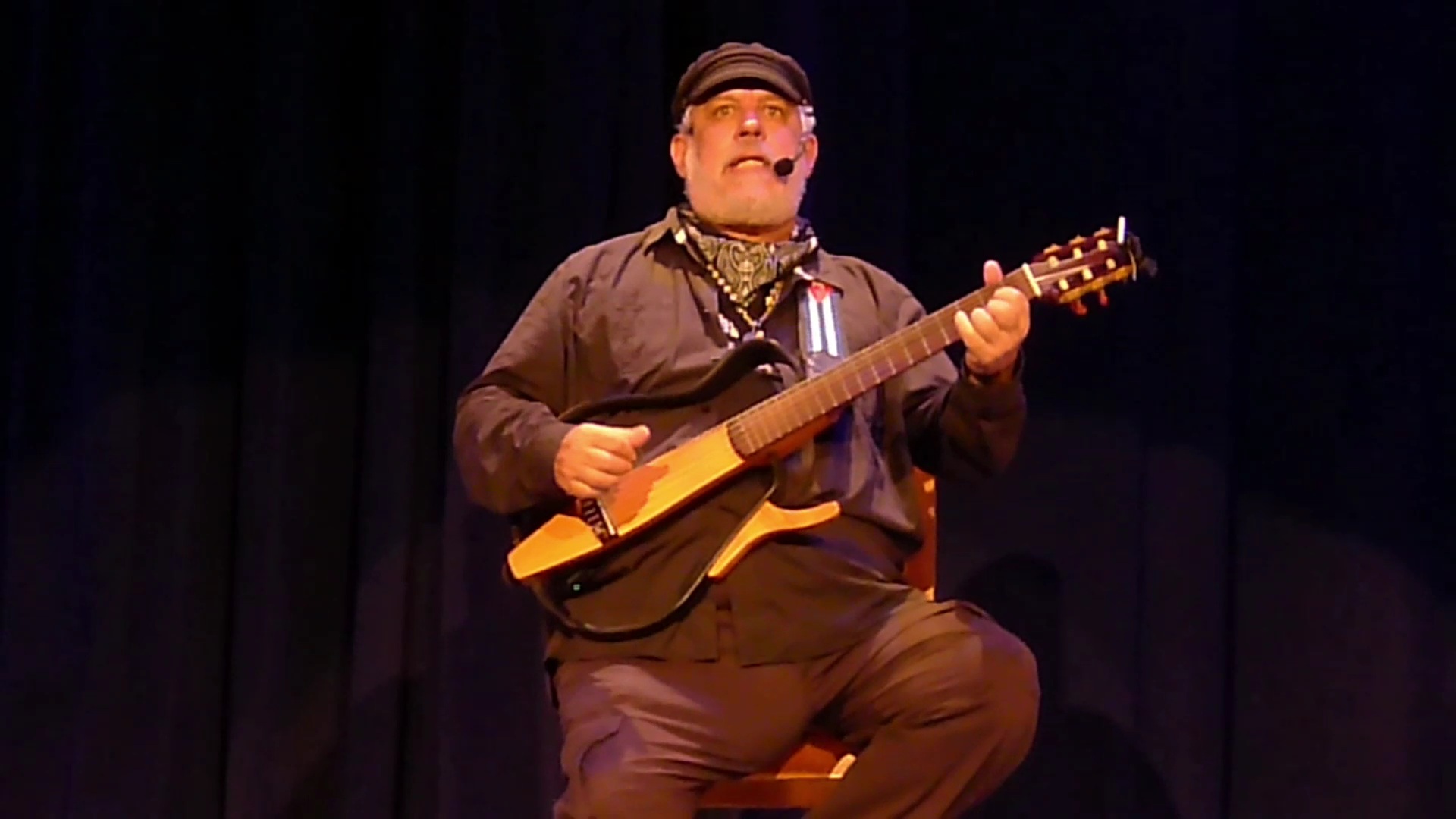
I, for example, am a guy who has no manager or producer. I know people who have an infrastructure, a group, who tell you: «Talk to my producer… oh, no, that’s not with him, that’s with my manager.» I stay cold, manager and producer.
Suddenly the microphone falls and lands on the floor, Frank picks it up in a jiffy, and jokingly says: “I’m my manager, my producer. On the Internet I annoy people to look for my activities. In other words, I do everything, and I feel very happy like this ».
The first time I’ve done this format of A lo Juglar, and with the diadem in a theater, I’ve done it in small places, in bars. There it lends itself more, I look at people’s eyes. Here it is very difficult because I had the lights on in the front and I could see absolutely nothing. But I imagine it. When I listen to the reactions, I can tell that they are having a good time. I wanted to do something very minimalist, with a guitar moving across the stage. I think it came out correct.
The troubadour, a pamphlet of other people’s texts and scores, goes up to the audience with Pablito, with Santiago, Vicente, Noel Nicola, Juan Formel. He recounts anecdotes with them, pays homage to them, interprets their lyrics. Those seated listen, aware that something extraordinarily valuable is happening: a pilgrimage for 60 years of trova. The troubadours are perceived in the faces of those present. The body remains, the work transcends, and they have made a deep impression on Frank and the humming of the Sauto shows that in Matanzas as well
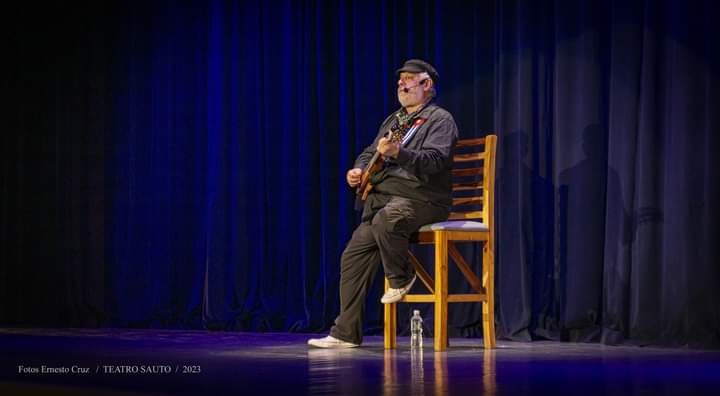
They go with the esteem of Frank Delgado. Who has the respect of one of the identity faces of the song to rope and throat?
I respect educated people, those who know how to make stories. Since I was a child, I used to sit with my grandmother, there in Consolación del Sur, to listen to her talk to her friends. I loved gossip, I found out everything, who had died, who hit Mengano’s jars. In my life I have heard a lot of oral narration. I have become a fan of those who have the ability to count. People who have gone to places and know how to transmit those stories, I have always liked them a lot.
But above all I like coherent people. I can’t stand the one who thinks one way today and the next day thought the opposite. They’re like weathervanes, aren’t they? Those sudden coat-changers. I respect the worms for a lifetime, they are my partners. But to the neoworms, those who said everything, and they crushed me and now they want people to go out on the streets. For example, those people, I can’t with them.
Frank Delgado writes scathing verses with subtle strokes. The hilarity that it causes in the public is based on a fine eye for detecting conflicts.
I try to tear the clothes, be authentic when creating. There’s a very funny meme that says: -In the song I say that she’s cross-eyed, stuttering and toothless… Silvio, damn, that can’t be said in a song… Oh, well: I hope the constant gaze ends, the word needs the perfect smile… Saying in certain ways allows you to reach more.
I never put up with revolutionary pamphleteering songs. Some even have historical importance, the songs of the Spanish Civil War, or the songs of the Zapatista Corridos. As historical foundations, I would spare their lives, but it’s not the music I like the most.
I enjoy poetry within political songs, for example, La Estaca, a hymn that Franco banned by Lluís Llach, Catalan, beautiful lyrics, or Grandola Vila Morena, a song from the Carnation Revolution in Portugal. There are ways of saying very strong things, but poetically. Maybe I don’t say them with so much poetry, but with humor, because laughing is an antidote, it’s a way for things to go smoother.
There was a time when I wrote a lot of songs about the Special Period. Topics that were not politically incorrect either?, I ask. Imagine that a song as silly as Cuando se vaya la luz, mi negra, couldn’t even be played in spiritual centers. The only song that was broadcast on the radio from the Trovatur album was Utopias, the others, Konchalovski, forget about putting some of that on television.
One of the most suggestive and powerful voices of the Cuban trova maintains the avidity to write and sing, like the one of the first days in the Festivals of Amateur Artists of the Cujae. There is a lot of Cuba to tell, to leave the guitar hanging on the wall. (CMB)
Translated by Casterman Medina de Leon
